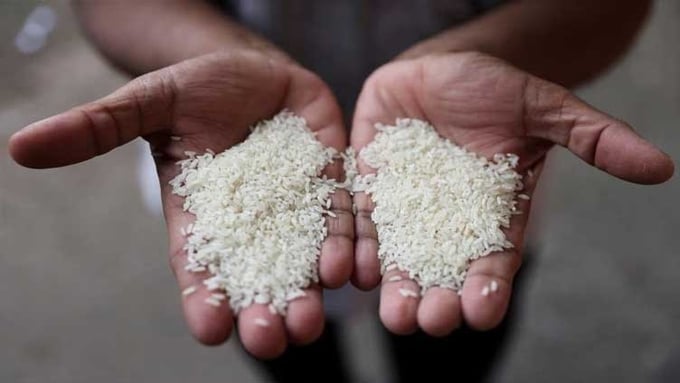November 26, 2025 | 18:22 GMT +7
November 26, 2025 | 18:22 GMT +7
Hotline: 0913.378.918
November 26, 2025 | 18:22 GMT +7
Hotline: 0913.378.918

The MEP was expected to be cut with the arrival of the new season harvests, but the government said on Oct. 14 it would maintain it until further notice, angering farmers and exporters who said the new season's rice crops had led to a drop in domestic prices.
India had imposed a $1,200 per ton minimum export price (MEP) on basmati rice shipments in August to keep a lid on local prices ahead of key state elections.
The MEP was expected to be cut with the arrival of the new season harvests, but the government said on Oct. 14 it would maintain it until further notice, angering farmers and exporters who said the new season's rice crops had led to a drop in domestic prices.
Authorities later said they were actively reviewing the MEP.
"The reduction will reinstate competitiveness of Indian basmati rice shipments at the global markets. Exporters are now working towards regaining the lost ground," said Atul Garg, managing director at GRM Overseas (GRMO.NS), a leading exporter.
India and Pakistan are the leading exporters of basmati rice. New Delhi exports more than 4 million metric tons of basmati - the premium long-grain variety famed for its aroma - to countries such as Iran, Iraq, Yemen, Saudi Arabia, the United Arab Emirates, and the United States.
India is set to produce more basmati rice this year than the previous year as farmers have expanded their cultivation areas following record returns last year, said a dealer with a global trade house.
However, farmers were struggling to sell paddy because millers and traders stopped coming to key wholesale markets to make purchases, he said.
"Now they will start buying paddy, which will help stabilize paddy prices that have corrected nearly 20% in the last two months," he added.
India, the world's biggest rice exporter, has also curbed exports of non-basmati rice varieties.
(Reuters)

(VAN) A new study reveals how the simultaneous effects of ocean acidification, salinity and loss of oxygen are making the world more fragile.

(VAN) Hopes are growing that the creation of the first 3D turkey gut model could be a turning point in the battle against the virulent blackhead disease.

(VAN) Tyson, America’s biggest meat supplier, plans to shutter one of its largest beef processing plants as the industry continues to struggle with low cattle supplies and political pressure from Washington.

(VAN) New FAO study shows how digital solutions are empowering farmers and fishers to prevent losses and build resilient agrifood systems.

(VAN) Brazil's COP30 presidency pushed through a compromise climate deal on Saturday that would boost finance for poor nations coping with global warming but that omitted any mention of the fossil fuels driving it.

(VAN) Poultry farmers in the UK have been warned that they could face one of the worst winters yet for bird flu.

(VAN) Prices of main-crop paddy have risen sharply, with jasmine rice hitting 16,100 baht per tonne — the highest level in years.